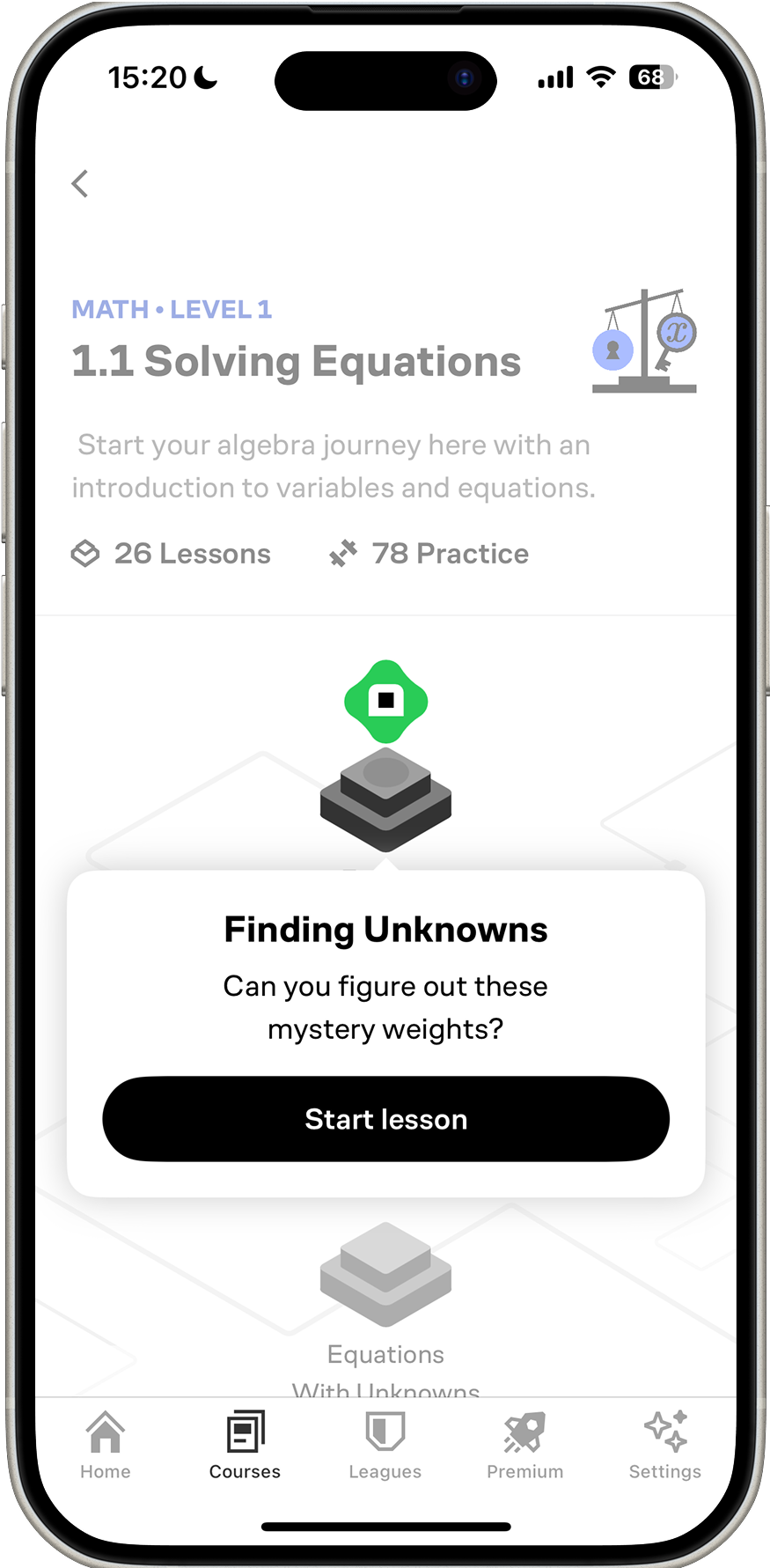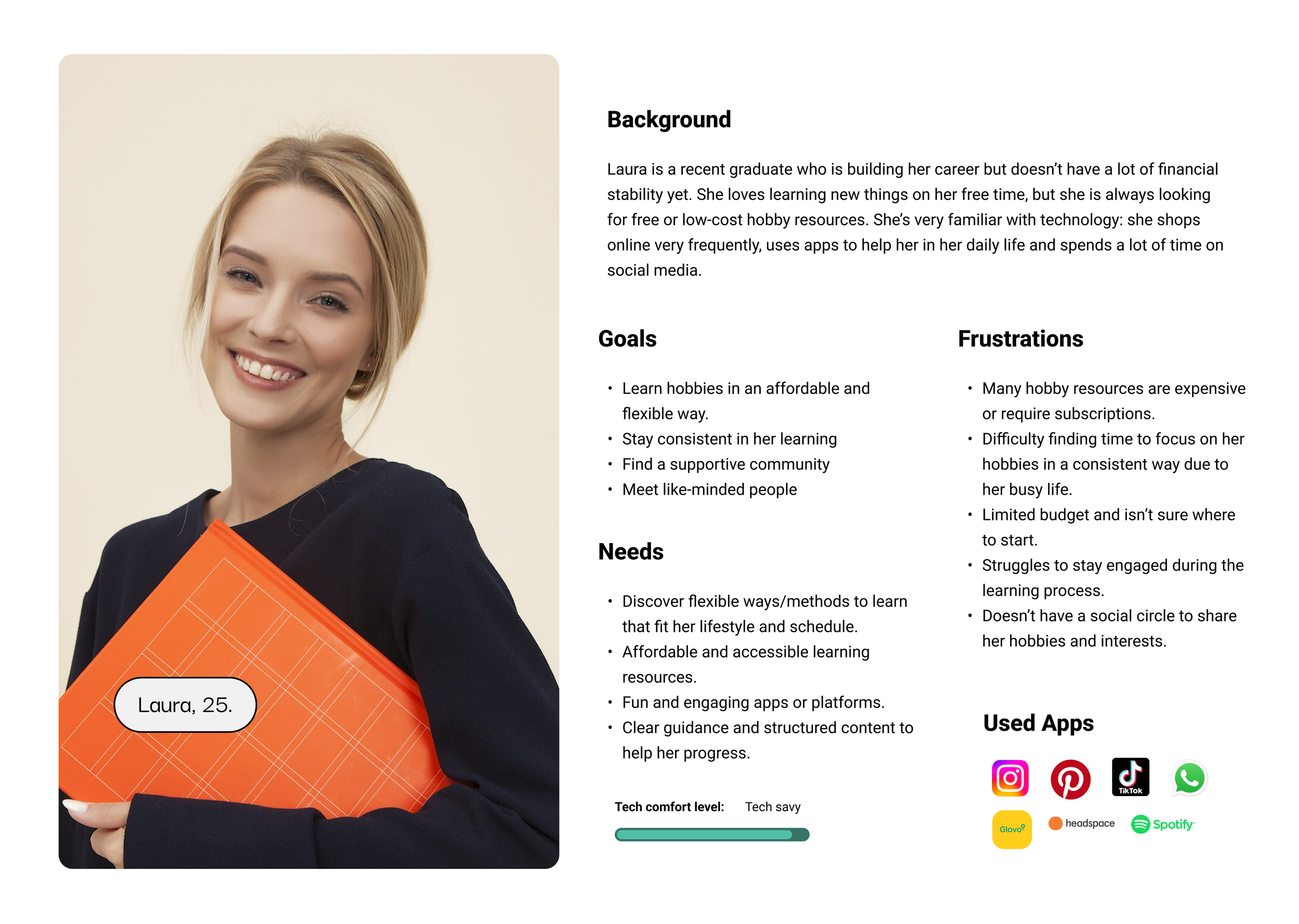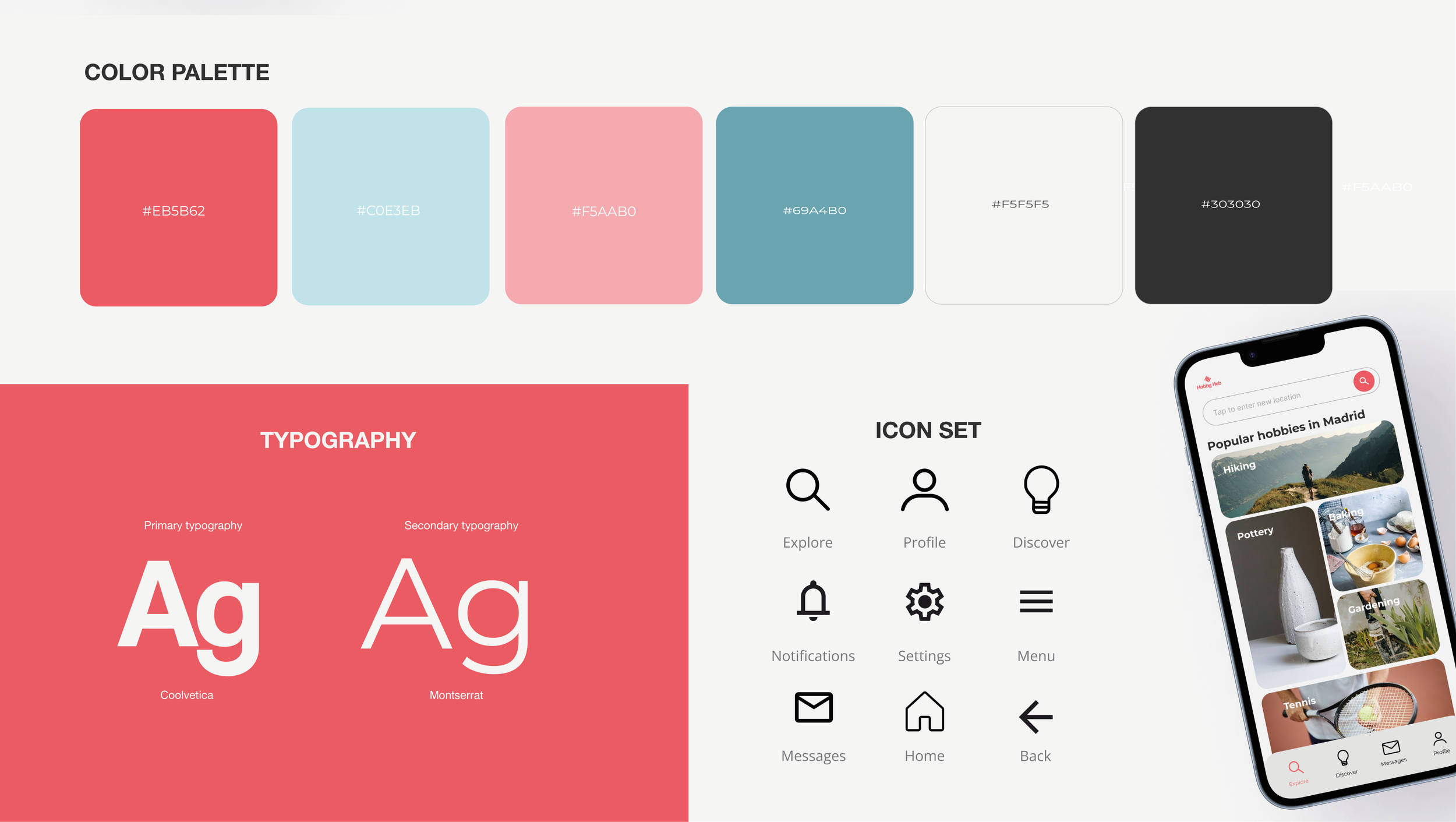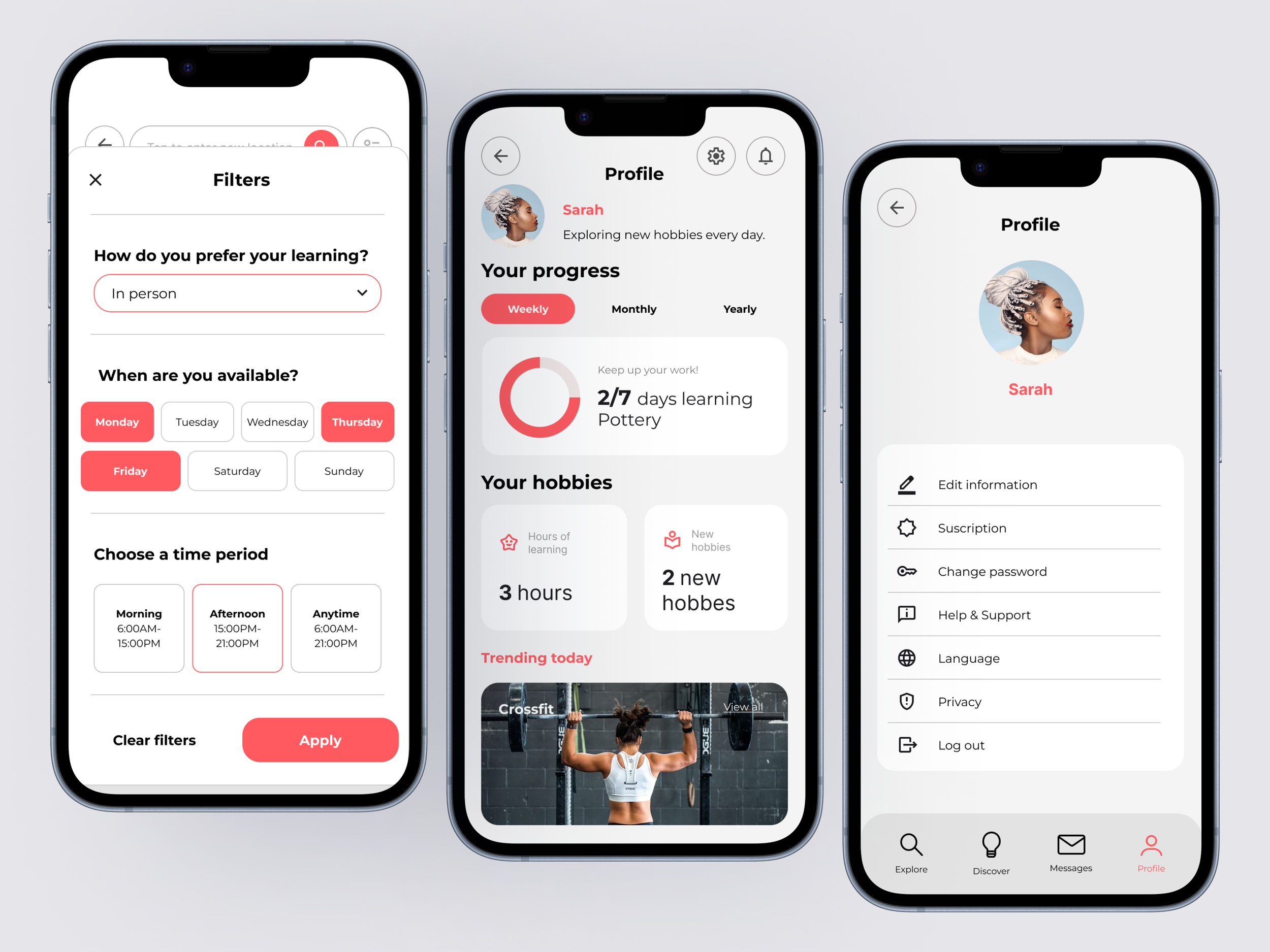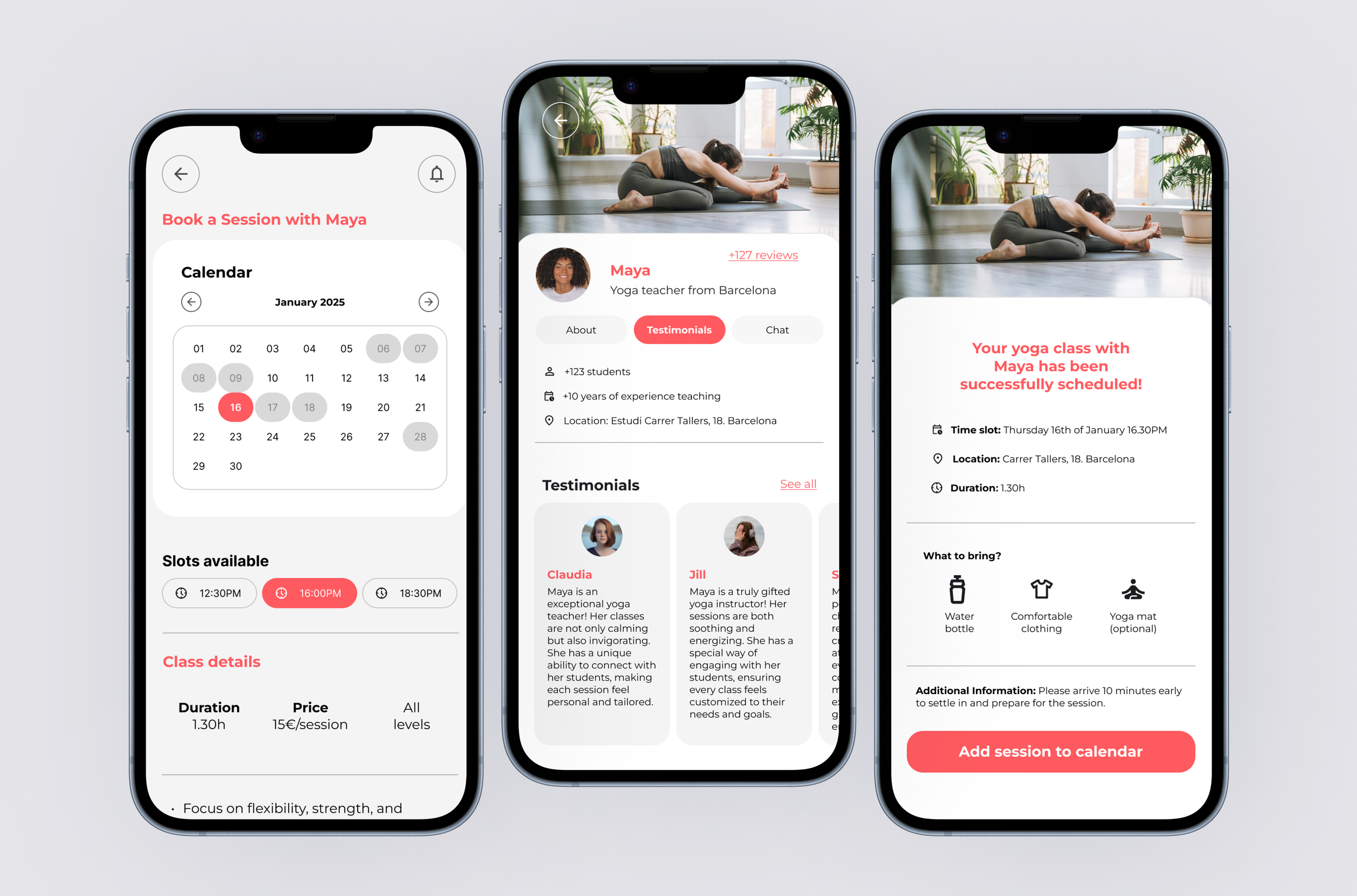Role: UX researcher and UX/UI designer
Building a thriving learning network through mentors, groups, and local connections
Tools: Figma, Miro, Photoshop & Illustrator
Duration: 12 weeks
Industry: entertainment
Background
A hobby is an enjoyable activity pursued in one's free time, outside of work or obligations. It can include interests like sports, arts, music and others.
60%
79%
How might we create a platform that makes learning new hobbies easier, more engaging, and community-driven?
Individuals wanting to explore new hobbies but lacking guidance and resources.
THE USERS
This project tackles the challenges of learning new hobbies, such as lack of resources, time, and motivation. The solution is an app that connects learners with mentors and local communities, making the learning process more accessible and engaging.
THE PRODUCT
Establish a strong user base, drive premium conversions, build brand trust, and enhance engagement through feature development and community growth.
BUSINESS GOALS
THE SOLUTION
A mobile app that helps users find mentors and hobby groups in their area, fostering connections with like-minded people through a flexible subscription model.
KEY FEATURES
Localized search · Community · Mentorship · Flexibility
RESEARCH
COMPETITOR ANALYSIS
Key insights
From the interviews, several key insights emerged:
Difficulty in Finding Quality Resources:
Users struggle to find reliable and valuable resources when learning new hobbies, leading to frustration and uncertainty.Feeling of Disconnection:
Many users feel isolated during their hobby-learning journey, lacking a sense of community that could help them stay motivated.Limited Expert Guidance:
Users often feel stuck due to the absence of expert advice, making it difficult to track their progress or receive feedback on their learning.
USER PERSONAS
PAIN POINTS
Time constraints
Cost (expensive hobbies)
Lack of quality resources
WHAT THEY VALUE
To gain a deeper understanding of users' experiences with learning new hobbies, I conducted a total of 5 user interviews (between age 24-58 years old). These interviews were a combination of in-person and online sessions, allowing me to gather insights from participants with different schedules and preferences.The goal was to understand their challenges and experiences when learning new hobbies. I selected a diverse group to capture various perspectives. The interviews followed a semi-structured format, allowing for open discussions on topics like resource availability, community engagement, and expert guidance. The combination of in-person and online sessions provided flexibility while ensuring authentic insights.
USER INTERVIEWS
AFFINITY MAPPING
Mentor/teacher
Community
Hobbies for well-being
Visual learning preferences
DEFINE
SITEMAP
USERFLOWS
MID-FIDELITY WIREFRAMES



